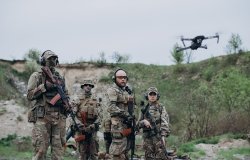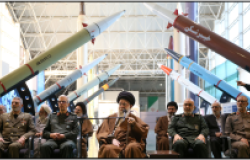Book Discussion: <i>The Least Worst Place: Guantanamo's First 100 Days</i>
Karen Greenberg, Executive Director, Center on Law and Security, New York University School of Law
Overview
Speaker: Karen Greenberg, Executive Director, Center on Law and Security, New York University School of Law
This event, co-sponsored by Georgetown University's Center for Peace and Security Studies, is part of International Security Studies' ongoing Terrorism and Homeland Security Forum.
Greenberg's book focuses on the hundred-day span from December 2001 through March 2002, when Camp X-Ray at the U.S. naval base in Guantanamo, Cuba opened to house suspected al-Qaeda and Taliban operatives captured by U.S. forces in Afghanistan. Much has been written about policymaking in Washington during that period; by contrast, very little is known about what actually happened on the ground in Cuba. Greenberg's volume, based on extensive interviews with those who worked in Guantanamo, fills that gap.
Greenberg argues that the military officers at Guantanamo tried to institute a system of detention consistent with the United States' obligations under the Geneva Conventions but were ultimately unable to do so in the face of resistance by civilian officials back in Washington.
"Those early days—back before Gitmo became Gitmo," she writes, "strongly suggest that the damage the prison inflicted on America's honor and security could have been avoided if policymakers had been willing to follow the uniformed military's basic instincts."
In early January 2002, Joint Task Force 160, commanded by Marine Brigadier General Michael Lehnert, was deployed to Guantanamo to guard about 300 detainees en route to Cuba from Afghanistan. Lehnert's force of 2000 troops had only 96 hours to prepare the detention facility. But more problematic than this logistical challenge, Greenberg stated, was the policy vacuum General Lehnert had to operate within. In the absence of guidance from Washington, Lehnert fell back on the military's established rules governing the treatment of prisoners—the Uniform Code of Military Justice and, above all, the Geneva Conventions. Civilian policymakers in the Department of Defense unsuccessfully tried to block a visit of the International Committee of the Red Cross to Guantanamo that Lehnert had organized.
For Secretary of Defense Donald Rumsfeld and his close civilian aides, the urgent objective was to obtain valuable, actionable intelligence from the detainees, two-thirds of whom, Greenberg estimates, had no intelligence value; these detainees knew nothing about Al Qaeda's plans and had simply been swept up in Afghanistan during U.S. military operations against the Taliban. To work around Lehnert, Secretary of Defense Donald Rumsfeld ordered the deployment of a parallel unit whose core mission was gathering intelligence. Guantanamo became "run not by the rules of detention, but by the rules of interrogation," Greenberg stated.
Within weeks, Lehnert's force was redeployed and "a new Guantanamo took shape." The detention facility quickly "descended into chaos": fruitless interrogations were conducted under guidelines laid down in the so-called "torture memos" prepared by the Bush administration's legal counsel. One of the "most shameful passages in U.S. history" could have been prevented, Greenberg concludes, if the U.S. government had been "willing to trust in the professionalism of its superb military."
Thank you for your interest in this event. Please send any feedback or questions to our Events staff.










